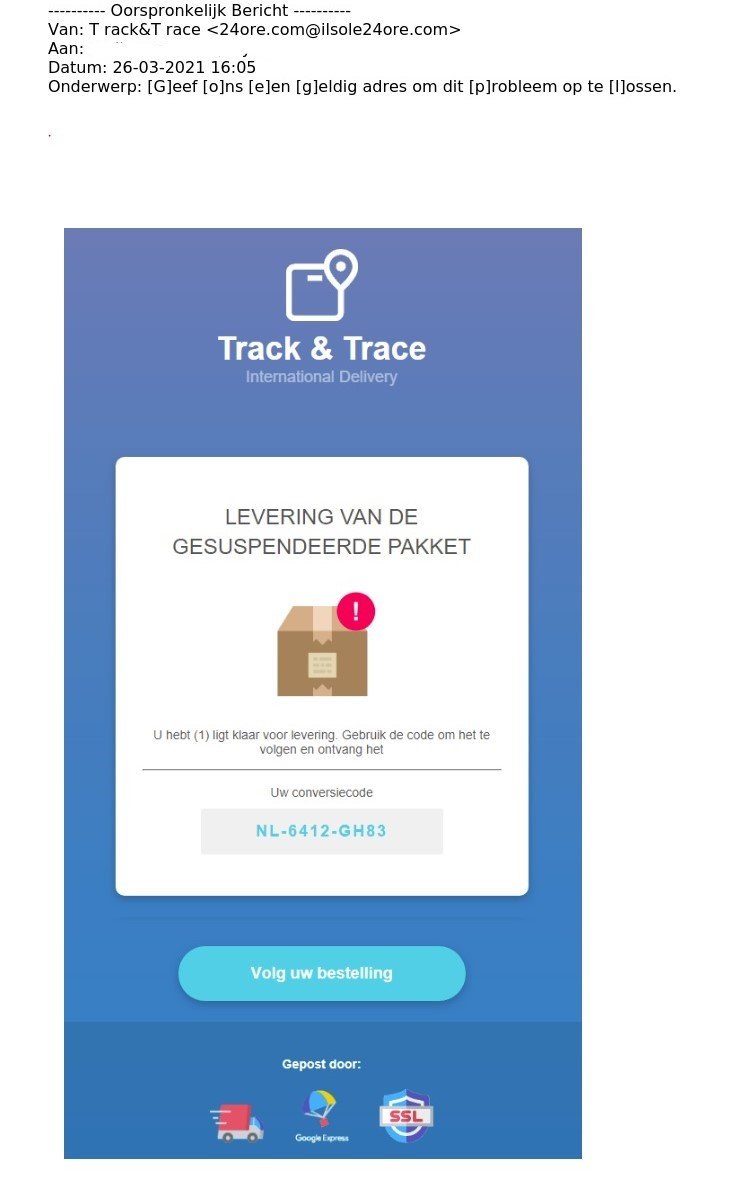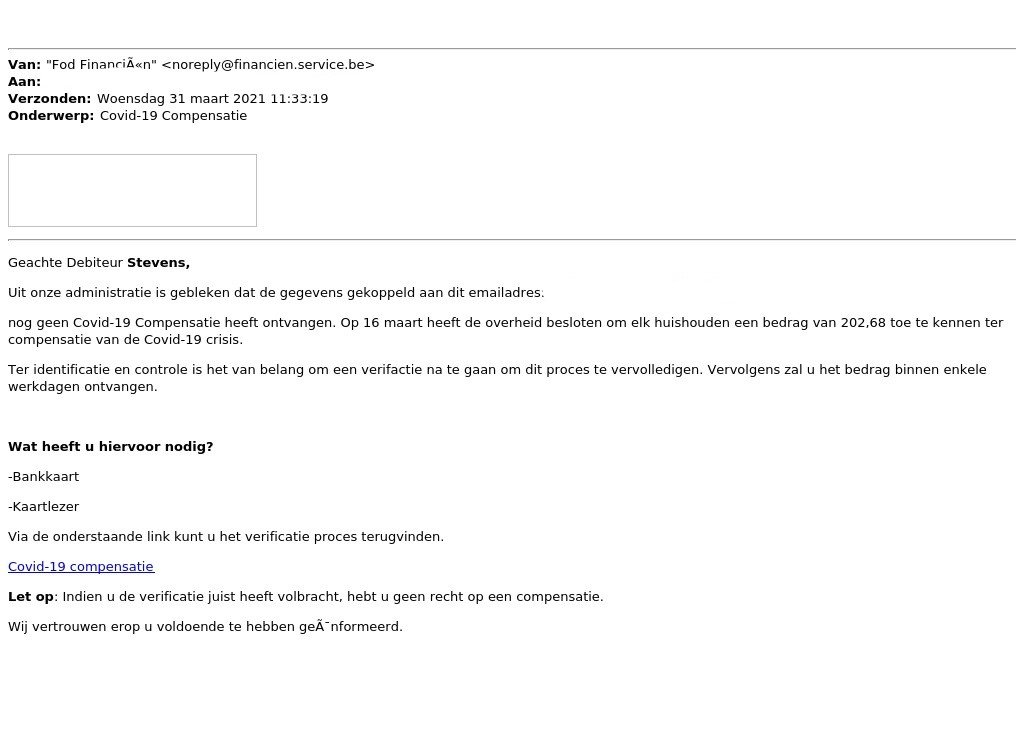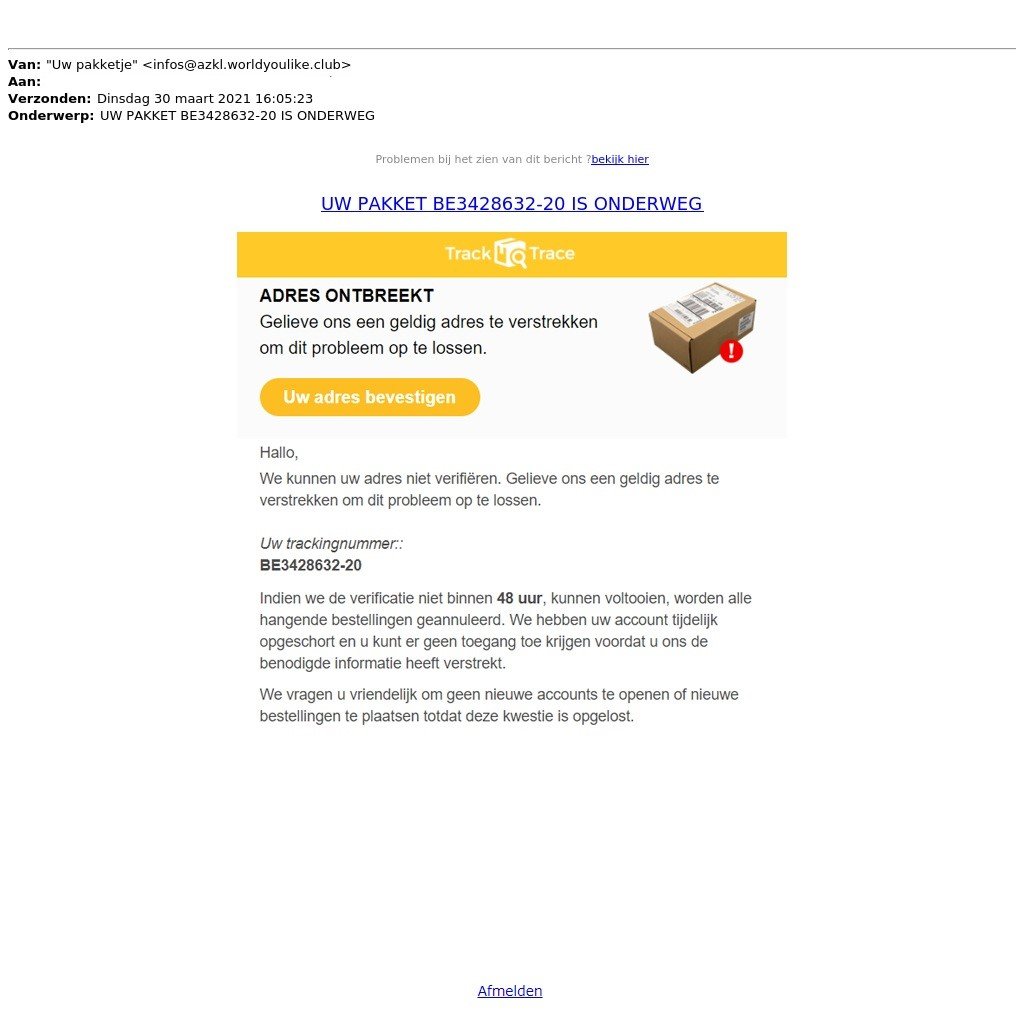Don't be fooled. Cybercriminals do not take Easter off, so beware. This week, we saw these fake messages popping up (below).
Always think twice before clicking:
- Is an offer too good to be true?
- Is there pressure to click quickly?
- Does the url look 'weird'?
- Don't click and inform yourself first via other channels.

volledige breedte

volledige breedte

volledige breedte
Don't fall into the trap!
Learn to identify fake e-mails.
Take the phishing test now and don’t be caught out ever again!
What to do?
- Do not click on a link in a suspicious message or open attachments.
- Do not forward the message to your contacts.
- Suspicious emails can be forwarded to suspicious@safeonweb.be.
- Suspicious text messages can also be forwarded. Take a screenshot and send it to suspicious@safeonweb.be. The content is then processed automatically.
Did you click on a suspicious link?
- If you have clicked on the link, do not complete the fields and terminate any interaction.
- If you have entered a password that you also use elsewhere, change it immediately.
- If you have clicked on a link that opens a website where you have to submit bank details, first check that this is the real website of your bank. If you have the slightest doubt, do not make a payment.
Have you been scammed?
- If you have lost money or are being extorted, we recommend that you file a report with your local police straight away.
- Contact your bank and/or Card Stop on 078 170 170 (+32 78 170 170 from abroad) if you have passed on bank details, money is disappearing from your bank account or if you have transferred money to a scammer. In this way, any fraudulent transactions can be blocked.
- If you want to report fraud, you can contact your bank via a special number: https://beschermjezelfonline.be/bank-contacteren-voor-hulp
